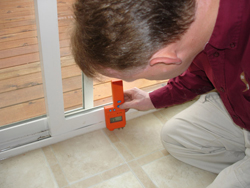 The Seven Things You Must Know To Avoid Hiring The Wrong Home Inspector
The Seven Things You Must Know To Avoid Hiring The Wrong Home Inspector
- Get A Home Inspection From The Owner Of The Company:
Nobody works harder for you the client than the owner of the company! The success of the business depends on exceeding your expectations for quality and professionalism each and every time and you just don’t get that level of service from “employee inspectors!” So be sure to get an inspection from the owner of the company because he has a vested interest in your Total Satisfaction!Also, it takes a full time inspector at least 200 inspections to develop the eyes, ears and nose for hunting down problems. Watch out for part-time home inspectors, they simply don’t have the time in the field to develop that radar. Be sure to ask how many inspections the inspector conducts annually and how many years he/she has been doing them. A quality full time home inspector conducts between 200 and 400 inspections annually – blind inspectors conduct 50 to 100 inspections annually. Conducting 200-400 inspections each year requires extensive referrals, by prior clients, lenders, real estate agents and others — so there is a much greater chance the inspector is not blind and does a fine job. - Education & Training:
Being a contractor is very different from being a Professional Home Inspector. Home inspectors are responsible for evaluating all of the systems and components of the home — not just one aspect like the brick or the framing. To be able to provide a competent evaluation of all of these elements takes formal education and training. Did the inspector attend one of the top home inspection schools, or did he have his brother in law Bubba show him how to inspect? Comprehensive continuing education and training is a must for an inspector to stay sharp! - Certifications:
While certifications are certainly important, it’s the combination of Experience, Education and Training that make the difference in the competency of your next home inspector. Certifications let the world know that the inspector can pass a test not that he can inspect a home properly. We all know people who are certified for one thing or another that we wouldn’t hire under any circumstances. There is simply no substitute for experience and proper training. - The Inspection Report:
The top home inspectors in today’s business don’t produce handwritten reports. A professional inspector will provide a computer generated report. Technology has evolved where you should expect to receive a full-color report, with digital photographs of the issues discovered during the course of the inspection. The report should provide “Summary Pages” with specific categories like Repairs, Safety Issues and Maintenance Items, etc.The report should not contain repair costs or action plans for repairs. Professional home inspectors inspect — they don’t repair! An inspector that makes repairs should always be avoided due to the conflict of interest inherent in that situation.Requesting information about the content of the report is important. After all this is what you are paying for. - How Long Has The Inspection Company Been In Business:
Is the inspection company locally owned and operated or are they some far away “faceless corporation” where no one is monitoring and evaluating the quality of their work? If you are dealing with a multi-inspector firm, how long has the inspection company been in business? Does the inspection company have dedicated employees serving as customer service representatives to schedule appointments and provide any needed follow up assistance or do you have to call “1-800-good-luck” to talk to a real person? Make sure they remain available to help you in the future as well. Your home inspector is an important relationship to bounce home issues off of in the future. - Ask What Other Buyers Have Said About The Inspector:
Quality Professional Home Inspectors ask their client’s to complete comment cards upon completion of the inspection. Professional Inspectors want to know what they are doing right, as well as what might need improvement. If the inspector can’t or won’t provide client referrals, he might be blind in more ways than one! - Ask Your Lender For A Referral For An Home Inspector:
The lenders sole interest in the transaction is seeing that you get a quality home that’s right for you and your family.

Leave A Comment